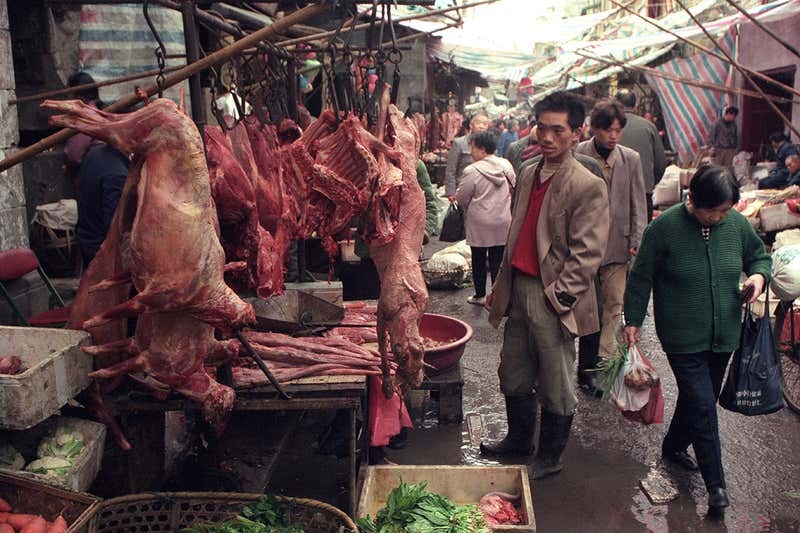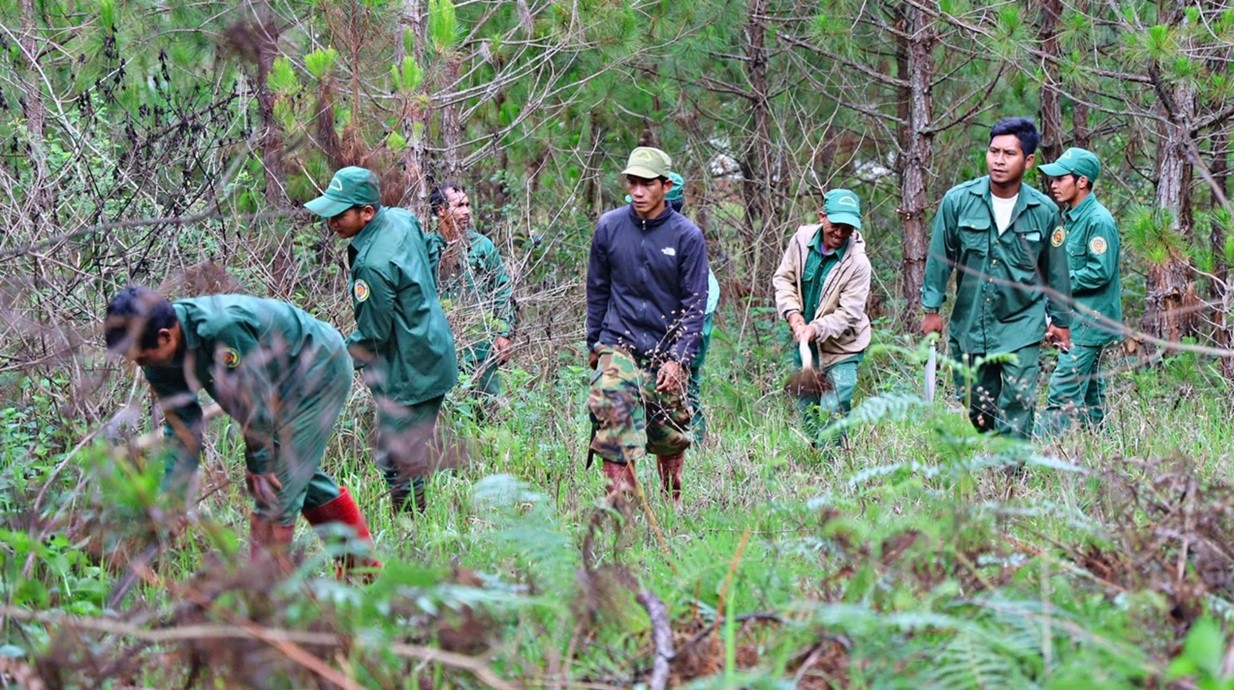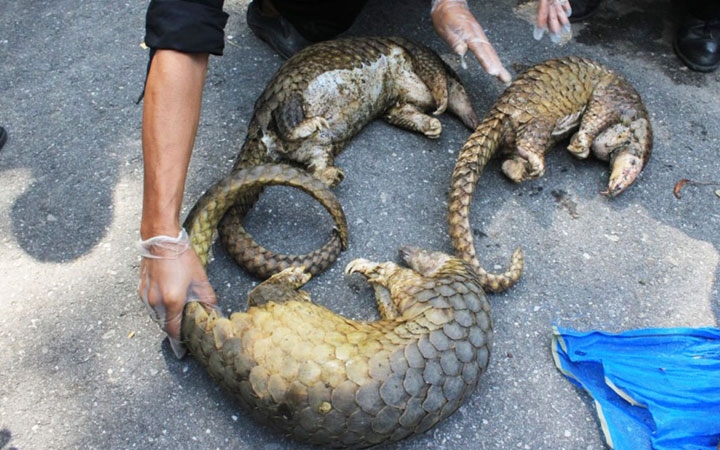Vietnam bans wildlife trade to reduce risk of pandemics
On July 23, Prime Minister Nguyen Xuan Phuc has issued a directive to ban wildlife trade with immediate effect in order to reduce the risk of new pandemics, a government statement said, cited Reuters and several news agencies recently.
According to it, imports of live wild animals and wildlife products, affects wildlife markets. It will also make sure to enforce strict prohibitions on illegal hunting and trading of wild animals, including online sales, according to the statement issued late on Thursday.
Vietnam is an important destination in the Asian region for illegal wildlife products such as pangolin scales and elephant ivory. There have also been seizures of rhino horns, which is believed to have medicinal value.
 |
| Illegal wildlife products caught in Vietnam. Photo: Trend |
According to Nhan Dan Newspaper, in February 2020, CHANGE, WildAid Vietnam, and 08 other non-profit and conservation organisations in Vietnam sent a joint letter urging the government to “identify and close markets and other locations where illegal wildlife is on sale”.
Vietnam is reported to have many wildlife markets and also a booming online trade in animals, with existing laws often limited enforced.
Neighbouring China has also pledged to ban the trade and consumption of wild animals in the wake of the coronavirus outbreak.
Scientists suspect that the virus was transferred to humans from animals. It was also found that the earliest infections were traced in people who were exposed to a wildlife market in Hubei’s provincial capital Wuhan, known to sell bats, snakes, civets and other animals.
 |
| Animal markets in Wuhan, China may be the source of the coronavirus outbreak. China temporarily banned the trade of wild animals until the virus has been eliminated. Photo: Amnat/Alamy/New Scientist |
| In the report titled "Silence of the snares - Southeast Asia’s snaring crisis" published by WWF early in 2020, a zoonosis is described as an infectious disease caused by a pathogen – such as a virus or bacteria – that has jumped from an animal host to a human. These account for a large proportion of overall diseases experienced by humans: ● 58% of all identified human pathogen species are known to be of zoonotic (animal) origin. ● Between 60% and 73% of emerging or re-emerging infectious diseases – those that are either new, or rapidly increasing – are known to be of zoonotic origin.31 ● 71% of zoonotic diseases known to have emerged between 1940-2004, involved a pathogen with a wildlife host, as opposed to other animal hosts (e.g. domesticated animals). ● Wildcaught animals are likely to pose a higher risk of future zoonotic disease emergence than farmed animals, including farmed wildlife.
|
| Zoonotic diseases – which include rabies, Ebola, tuberculosis, HIV, and emerging coronaviruses such as SARS, MERS, and COVID-19 – have had a significant impact on human health and wellbeing. The most recent and high-profile example is COVID-19, which has been the cause of hundreds of thousands of deaths, and millions of infections worldwide at the time of writing. In April 2020, it was projected by the Asian Development Bank that COVID-19 will cause between USD2.0 and 4.1 trillion losses from the global economy, with losses of 1.0% to 2.2% of total GDP in developing Asia; a category that includes the vast majority of Southeast Asian countries.
|
 | Mekong region: Short film competition on illegal wildlife trade launched (VNF) The UK Government and the Luang Prabang Film Festival, in cooperation with the World Wildlife Fund (WWF) and the Wildlife Conservation Society (WCS), are ... |
 | Regional short-film making contest on illegal wildlife trade launched The UK Government, in conjunction with the Luang Prabang Film Festival, the World Wildlife Fund (WWF) and the Wildlife Conservation Society (WCS), has launched a ... |
 | Vietnam commits to strengthen law enforcement to curb illegal wildlife trade The Government of Vietnam recently hosted the Hanoi Conference on Illegal Wildlife Trade, the third in a series of global conference that started with the ... |
Recommended
 Viet's Home
Viet's Home
Hue City to Raise Awareness on Mine Accident Prevention
 Focus
Focus
Vietnam Leaves Imprints on the World Peacekeeping Map
 Viet's Home
Viet's Home
“Global Vietnamese Singing 2025” - Connecting Hearts Longing for Homeland
 Viet's Home
Viet's Home
Vietnam’s People's Public Security Force Actively Contributes to UN Peacekeeping Operations
Popular article
 Viet's Home
Viet's Home
HAUFO Enhances Competence of People-to-People Diplomacy Personnel
 Viet's Home
Viet's Home
Hands that Reserve Da Long Brocade Craft
 Viet's Home
Viet's Home
Da Rsal – How Digital Transformation Reshape a Poor Commune
 Viet's Home
Viet's Home












